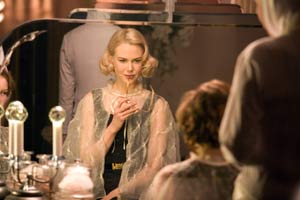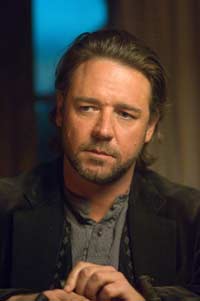 Just as I reluctantly entered the fray over “The Da Vinci Code” movie debate, I am not interested in giving more free ink to the film adaptation of Philip Pullman’s “The Golden Compass.” I am not going to call for a boycott, and I am not going to ramble about conspiracy theories or agendas. However, given fellow blogger Donna’s numerous and effusive posts in support of Pullman, I feel some responsibility to point to other Christian responses that are neither fundamentalist, Bible-thumping rantings nor uninformed, unscholarly musings (not that I think Donna falls into either of those categories, but she seems to think most critics do fit into these two groups).
Just as I reluctantly entered the fray over “The Da Vinci Code” movie debate, I am not interested in giving more free ink to the film adaptation of Philip Pullman’s “The Golden Compass.” I am not going to call for a boycott, and I am not going to ramble about conspiracy theories or agendas. However, given fellow blogger Donna’s numerous and effusive posts in support of Pullman, I feel some responsibility to point to other Christian responses that are neither fundamentalist, Bible-thumping rantings nor uninformed, unscholarly musings (not that I think Donna falls into either of those categories, but she seems to think most critics do fit into these two groups).
If you are interested in reading well-thought-out arguments by critics who know the fantasy genre much better than I do yet still do not support the notion of Pullman’s very tolerant, magnanimous literary intentions, I suggest you read fantasy author Jeffrey Overstreet’s anaylsis, in which he describes in detail his respect for Pullman’s writing while pointing out that with Pullman’s anti-religion bias, he still never has the courage to deal with the true nature of Christ himself.
You could also check out critic Peter Chattaway’s take on the movie, where he discusses how there have been complaints that movie has been dumbed down so that it wouldn’t be so anti-religious–and that has inflamed the secularist group Pullman belongs to.
Both posts are excellent for the way they address–without hyperbole–the underlying problem with all of the media spin around this movie: Maybe the “Compass” is great literature for its genre, but great literature throughout history is always written from a specific world view, and Pullman definitely has one. So he should take responsibility for that instead of cleverly evading the issue in the hopes of bigger box office.


